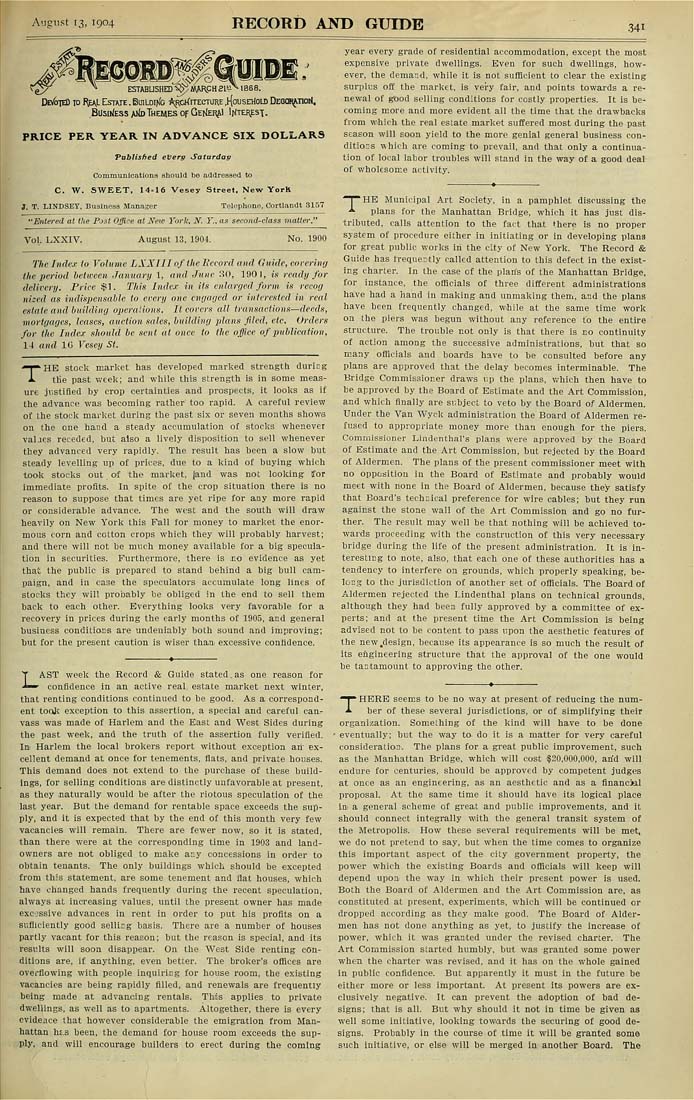
Text version:
Please note: this text may be incomplete. For more information about this OCR, view
About OCR text.
August 13, 1904 RECORD AJVD GUIDE .341 ^r^ ^ ESTABUSHED^WvARpHSl^^iaeS. toilTEDpHE^l-EsTWE.BuiLDIh'G A,RafiTE(rrtmE,HoiiSOi01D DEQCHlATIOtl. .BUSIliESSAliDTHEMESOFGEtJERAl Ij^TEf^ST, PRICE PER YEAR IN ADVANCE SIX DOLLARS Published etierff Saturday Communicatlona should bo addressed to C. W. SWEET, 14-16 Vesey Street, New YorE J. T. LINDSEY. Business Manager Telephone, Cortlandt 3157 -Entered at the Pjs( 03ee at New Yorle, N. T.. as seeond-dass matter." Vol. LXXIV. August 13. 1904. No. 1900 The Index lo Volume LXX III of the Eecord and Guide, covering the period beiivcen January 1, and June SO, IflOl, is ready for delivery. .Frivr *1. This Index in It.^ cnJargnl form is recog ni:ed a.-: iiuli.'
al proposal. At the same time it should have its logical place in a general scheme of great and public improvements, and it should connect integrally with the general transit system of the Metropolis. How these several requirements will be met, we do not pretend to say, but when the time comes to organize this important aspect of the city government property, the power which the existing Boards and officials will keep will depend upon the way in which their present power is used. Both the Board of Aldermen and the Art Commission are, as constituted at present, experiments, which will be continued or dropped according as they make good. The Board of Alder¬ men has not done anything as yet, to justify the increase of power, which it was granted under the revised charter. The Art Commission started humbly, but was granted some power when the charter was revised, and it has on the whole gained in public confidence. But apparently it must in the future be either more or less important. At present its powers are ex¬ clusively negative. It can prevent the adoption of bad de¬ signs; that is all. But why should it not iu time be given as well some initiative, looking towards the securing of good de¬ signs. Probably in the course of time it will be granted some such initiative, or else will be merged in another Board. The
